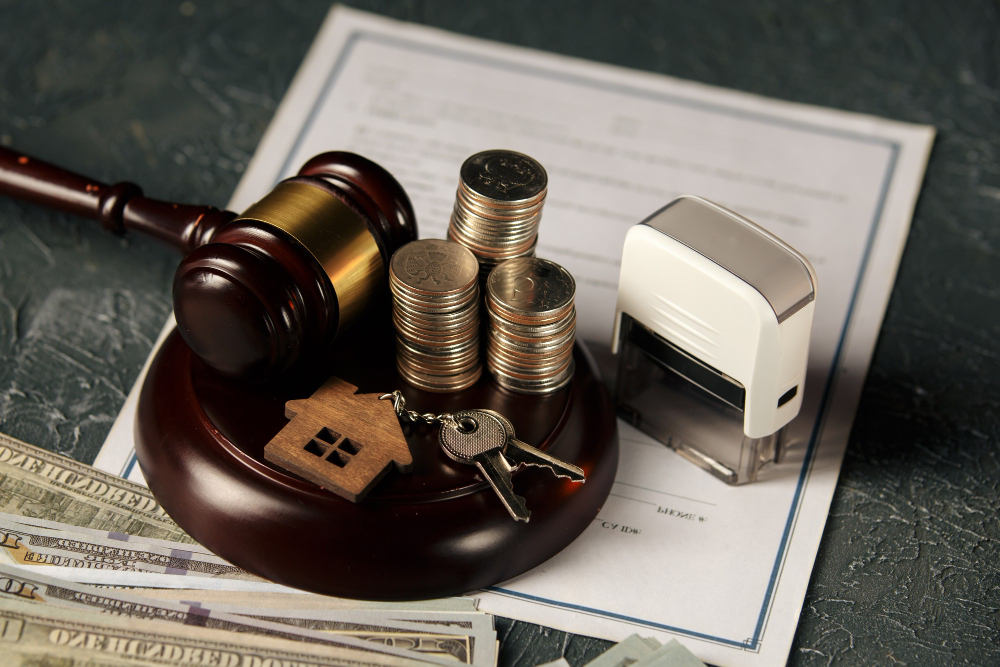


When navigating the stressful waters of the criminal justice system, understanding the intricacies of the bail bond industry can make a significant difference. In this comprehensive guide, we'll explore an often murky aspect of bail bonds: the collateral requirements. Whether you're a defendant or a concerned family member, familiarizing yourself with this critical information could potentially save you time, money, and unnecessary stress.
What Are Bail Bonds?
Bail bonds serve as a financial assurance that a defendant will appear in court. When someone is arrested, there's often an initial hearing wherein a judge sets a bail amount. This is the money needed to secure the release of the detainee until their court date. However, not everyone can afford to pay the full bail amount immediately. A bail bond comes in—acting as a promise backed by an insurance company or a bail agent that the defendant will attend all required court appearances and fulfill any other terms set by the court.
Understanding Their Importance
Bail bonds play a pivotal role in the judicial process by ensuring individuals retain their freedom until deemed otherwise by the court. This allows the accused to continue working, preparing their legal defense, and maintaining family and community ties.
Defining Bail Collateral
Collateral is any property or asset offered as security for the repayment of a debt or fulfillment of a legal obligation. Bail collateral operates under the same principle—it's a valuable asset provided by the defendant or their family to secure the bail bond.
Why is It Necessary?
The purpose of bail bond collateral is to mitigate the risks associated with the bail bond agreement. From the bail agent's perspective, collateral acts as a safeguard in case the defendant fails to appear in court. For the defendant or their loved ones, it's a way to secure the release without having to pay the full bail amount upfront.
Real Estate
Real estate properties, such as homes, land, or commercial buildings, are the most common forms of bail bond collateral. These assets are associated with significant value, making them attractive to bail bondsmen.
Vehicles and Boats
High-value automobiles, yachts, and other watercraft can be used as collateral, provided they are owned outright or the owner has substantial equity in them.
Savings Accounts, Investments, and Retirement Funds
Cash in savings accounts, stocks, bonds, and retirement funds with a market value can be offered as bail bond collateral. The owner must have documentation to prove ownership and value.
Jewelry and Art
High-value items like jewelry, art, and antiques, when appraised at a value that satisfies the bail amount, can serve as collateral.
Electronics and Other Valuables
In some cases, electronic equipment, such as high-end computers or large-screen televisions, could be considered as collateral. The items must be paid off and owned by the defendant or their family members.
Application and Documentation
The first step in using collateral for a bail bond is to complete an application with a bail bondsman. Documentation for the collateral's ownership and value will be required.
Appraisal and Verification
The bail agent will appraise and verify the value of the collateral. They might involve third-party assessors or use trusted sources to determine the worth and authenticity of the property.
Transfer of Title or Ownership
To use certain kinds of collateral, like real estate or vehicles, the title or ownership might need to be transferred to the bail agent, at least temporarily, to secure the bond.
Bail Agreement and Terms
After approval, a bail agreement with specific terms, including the collateral value and any related interest, is drawn up and signed by all parties.
The Pros of Collateralized Bail Bonds
The most significant benefit of using collateral is that it allows a defendant to secure their release without paying the full bail amount. It can also lead to lower interest rates or fees because the risk to the bail bondsman is reduced.
Understand the Risks Involved
Using collateral poses a risk to the defendant and their family, as the property or assets offered can be forfeited if the defendant fails to meet the court's requirements. It's vital to have a clear understanding of the stakes before proceeding with collateralized bail bonds.
Choosing a Reputable Bail Bondsman
Selecting a reputable bail bondsman is crucial when using collateral. Look for bondsmen with a proven track record, excellent customer service, and transparent business practices.
The Importance of Communication and Transparency
Open communication and a clear understanding of the terms and agreements are vital in the bail bond process. Ensure that the bail bondsman provides detailed information about the collateral requirements and the risks involved.
Seek Legal Advice When Necessary
In complex cases or when substantial assets are involved, seeking legal advice can provide an additional layer of protection and ensure you're making the best decision for your situation.
Navigating the bail bond industry, especially when collateral is involved, can be daunting. However, with a thorough understanding of the process and a diligent approach to choosing the right professionals to work with, you can find the right solution for your needs. Collateralized bail bonds can be an effective tool for securing the release of a loved one or yourself, allowing you to continue essential obligations while preparing your legal defense.
If you're looking for experienced assistance with bail bonds in Orlando, FL, Mike Snapp Bail Bonds is here to guide you through the process. It's always advisable to research local bail bond companies or seek personal recommendations from those you trust. With the knowledge gained from this guide, you are better equipped to engage with the bail bond system and make informed decisions that protect your rights and assets.